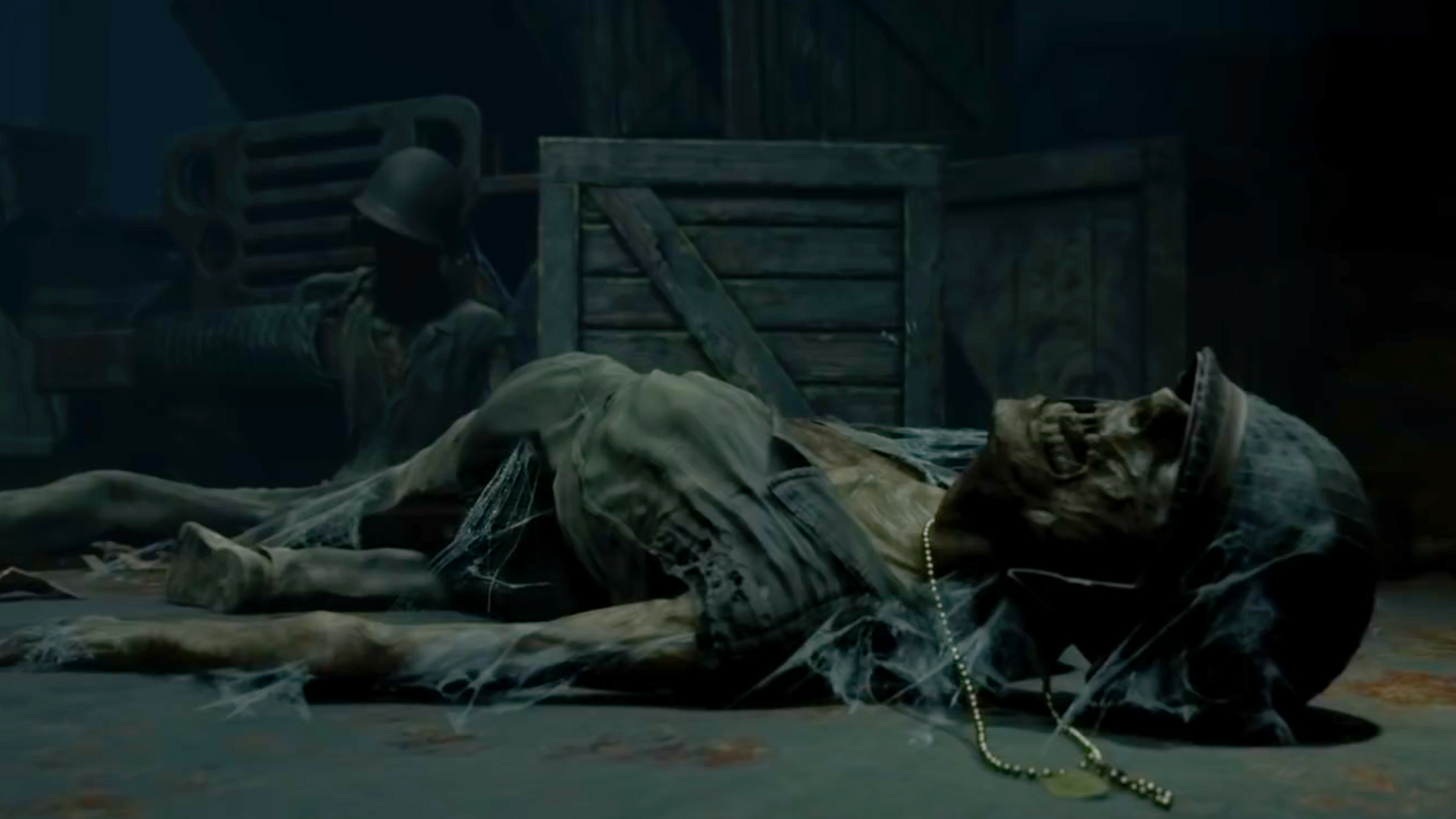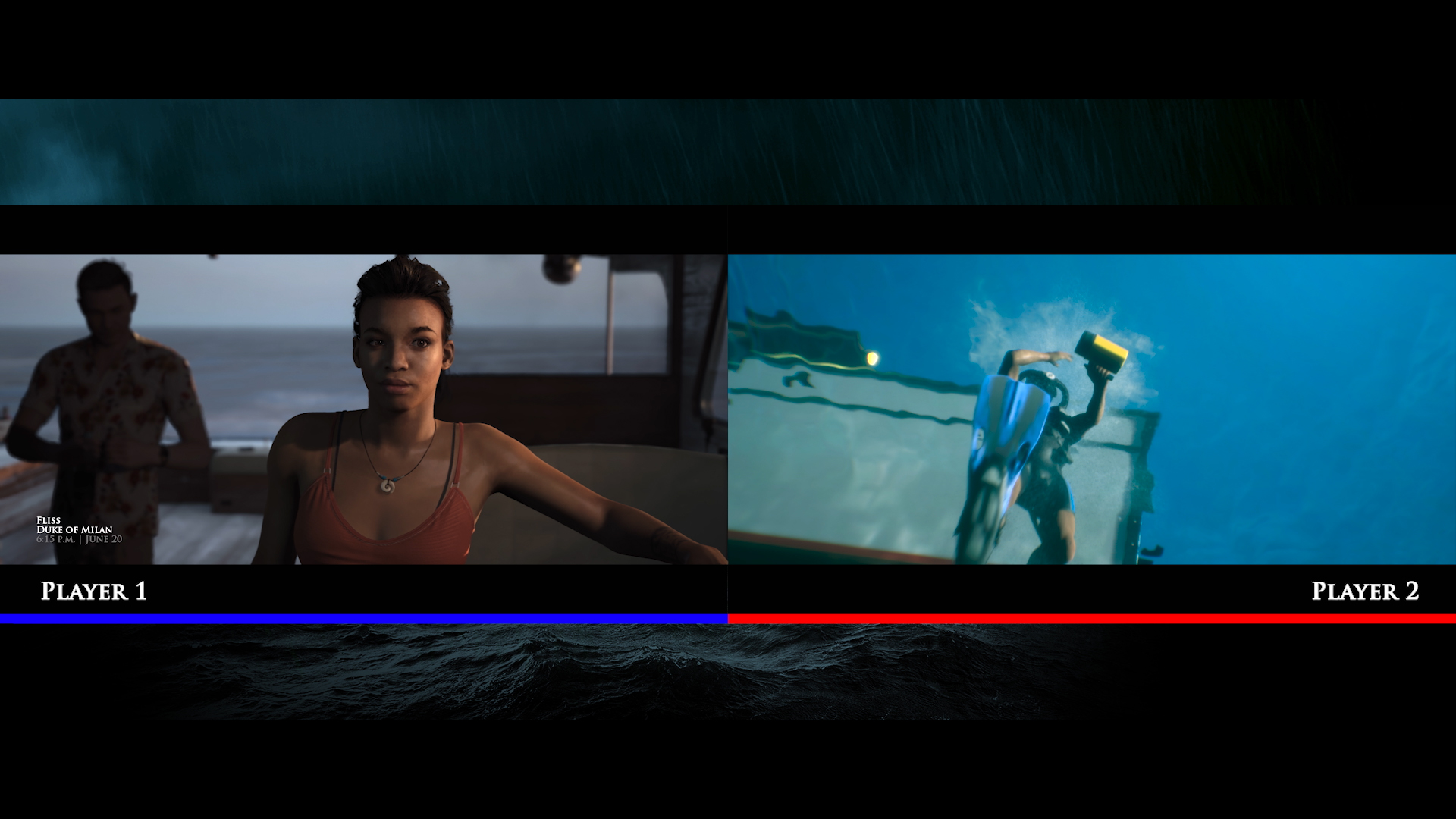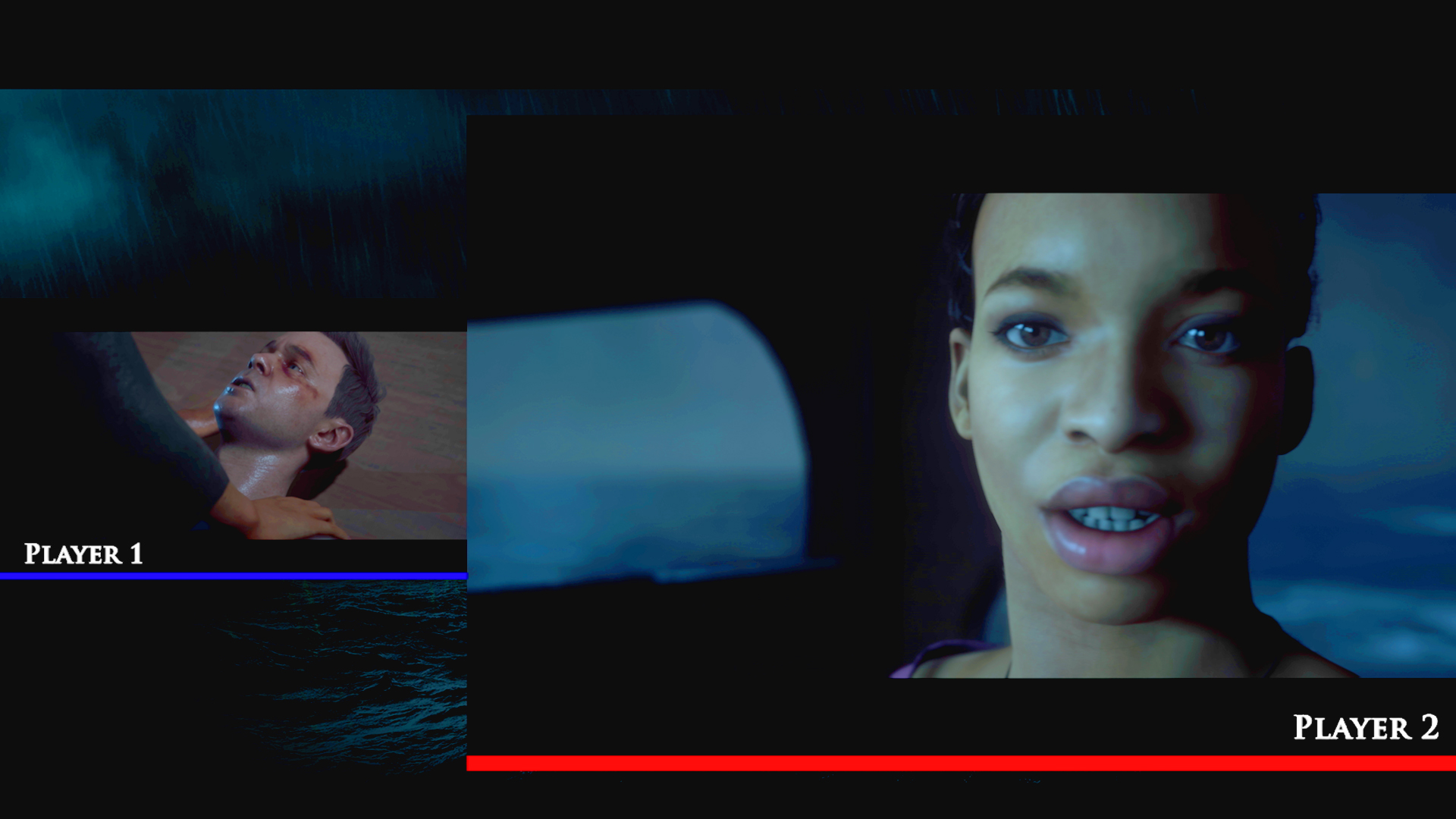Man of Medan’s shared two player horror story is one of the cleverest ideas in years
Two people, one story: hours of ‘wait, THAT’S why you did that?!’
There’s some serious magic in Man of Medan’s two-player single-player story, but it doesn’t completely cast its spell until both of you can meet up afterwards to talk about what happened; discovering all the ways you saw and experienced the same events differently. Until that moment what I played was still a great choose your own adventure b-movie horror flick in the style of SuperMassive’s previous game, Until Dawn - you wander spooky corridors looking for trouble and, when it finds you, there are seconds to choose between prompts that are usually ‘die’ and ‘probably die’ - but the pay off only really kicks in after all the blood has settled and you’ve had a wipe down.
Twice upon a time
First up, though, let me explain what I mean by a ‘two-player single-player story’ because it might take a couple of goes. Man of Medan’s main mode is basically a single player story you can play alone if you want, or in a pass-the-pad Movie Night mode where up to five people can control of each individual on-screen character. But the way it was meant to be played is with a second player online. Doing that sees you share the different characters, jumping between them and often splitting decisions and conversations in scenes. But, more importantly, you can experience the same scenes differently, with different conversations and even branching off into completely different areas. It means that while you more or less experience the same story you can approach certain situations or conversations armed with different knowledge or experiences. Obviously it’s best played without any kind of chat to avoid spoilers, leaving your friend as a sort of erratic NPC you question furiously afterwards about what the hell they were playing at.

The opening prologue is a great example of how the two-player set up works. Playing as a pair of American WW2 soldiers (myself and GamesRadar’s own James Jarvis aka JJ) at some point in the past, it sets up the Medan’s haunted heritage as the crew descend into unexplained madness. You start in different rooms with my character having to prize a key from a dead body to escape before releasing JJ from a jail cell. From there we both had to hide from a deranged soldier shooting everyone, via a heartbeat matching mini game before chasing a ghostly child into a storeroom where we were separated. Once alone, I found JJ’s character dead on the floor before seeing the ghostly child hide in a locker. Despite riddling it with bullets the little zombie kid was still alive when I opened it up and my character fell to the floor dead. End of intro: ship’s haunted now, please come back in 60 years with a tourist boat full of American tourists for more fun.
EXCEPT...
...it was only after talking to JJ that we discovered we’d had totally different experiences despite being together for more or less the whole time. JJ, for example, never saw the ghost I chased. He just saw me stopping suddenly, or darting down dead end corridors for no reason. And, when the game separated it us, it got extra dark: while my ending saw me shooting up a locker to kill the skeletal child after finding JJ’s character dead, JJ’s playthrough saw him hiding in a locker to escape a different ghost before being shot by a mystery assailant. Try having a post-game conversation where you sorta maybe killed your friend but also totally didn’t. Might of.
I heard a rumour...

The game is built around moments like this. Later, in a prologue where a cast of American tourists prepare for a diving trip, you and your partner separate for different conversations with other characters on deck, before reconvening to all talk together but knowing different things. A larger deviation sees one of you stay on the ship to make repairs and get a barbeque going, while your partner dives underwater to visit a wreck. Part of this can play out completely differently based on decisions you made during earlier conversations where you don’t entirely know what’s being talked about, or what it might mean later. I knew my character was talking about proposing to his girlfriend for example, because I’d seen him looking at the ring, but at that time JJ was at the other end of the boat chatting to someone else and just told me to ‘go for it’ when he came back to talk of a ‘big life decision’ he knew nothing about.
These decisions can also affect your characters in ways that aren’t clear at the time but can come back to haunt your choices. Choosing to do certain things or not, or to agree/disagree with certain people, can affect things called Traits and Relationships. Traits effectively level up your character’s personality, making them braver or cowardly for example, depending on how you react in certain situations. These Trait changes can open up or remove some options later, depending on how you’ve played. Relationship changes on the other hand vary how people feel about each other and, again, can potentially change the options you get later based on your behaviour. Finally, very significant choices can result in a Bearings Change, which is big, game altering moment that fundamentally shapes the future in some way.
Sign up to the GamesRadar+ Newsletter
Weekly digests, tales from the communities you love, and more
The path ahead
There’s obviously a lot of potential variation here, with numerous branches and changes you could trigger, often without knowing the ramifications initially. And that’s spread between two people making the calls both together and apart. It also includes items you can move or take that could be useful later depending where they are. It creates so many ways you can branch and affect the story, but the really interesting layer is that you could make any of these decisions, or react numerous ways, without entirely knowing your partner’s motivations or reasoning, and vice versa.

That’s the magic. Based on playing roughly the opening hour and a half, myself, JJ and two other people at the event where we played it, sat and talked for a good three or four hours afterwards - picking apart the difference between all our playthroughs. It was an evening punctuated with ‘wait, what?!’ interruptions and hand waving realisations as we discovered things we didn’t know had happened, or the reason some things had. I didn’t even know JJ had never seen the ghost I was chasing until several hours later. As a basic horror game Man of Medan is a promising mix of scares and decision making, but throw in the two player branching and the frantic post-game discussion it provokes and this is a really exciting idea.

I'm GamesRadar's Managing Editor for guides, which means I run GamesRadar's guides and tips content. I also write reviews, previews and features, largely about horror, action adventure, FPS and open world games. I previously worked on Kotaku, and the Official PlayStation Magazine and website.


